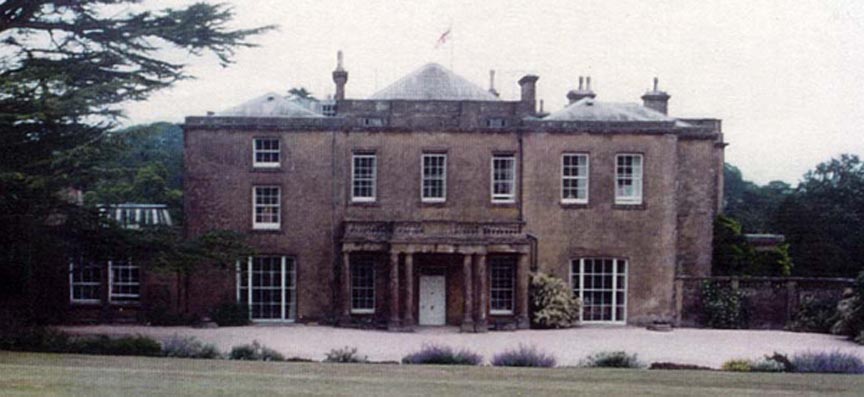


Like tens of thousands of Americans, I'm a fan of the great British series To The Manor Born starring Penelope Keith and Peter Boyles. And like those tens of thousands of fans, many of the British idioms and references leave me completely mystified. This page deciphers many of them and in so doing helps fans to better appreciate the series. It'll focus on trivia not available anywhere else.
To anyone unfamiliar with this 1979-1981 series, the plot revolves around the recently widowed Audrey fforbes-Hamilton having to sell her beloved Grantleigh estate to the newly-rich Mr. Richard DeVere. Over the course of 21 episodes their relationship slows evolves from adversarial to love.
EPISODE 1:
1. The show begins with the opening credits over laying an image of Grantleigh Manor, actually Cricket St. Thomas, a classic grand old house in Somerset, which is located in southwest England. Partially blocked by a tree branch, the glass roofed orangery, mentioned in episode 2, can be seen on the left. A side view provides a better idea of how massive this house is.
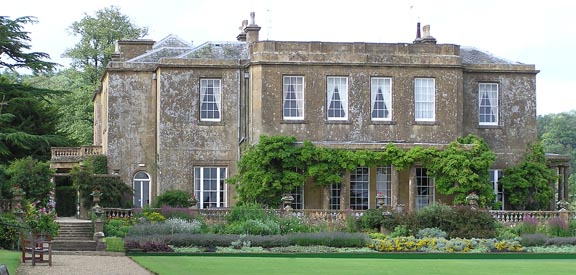
This is the side of the house opposite the orangery. The balcony over-draped with vines is where Richard DeVere often sits to view his estate. The original house was built in the 1300s, but significantly modernized in the early 1800s.
2. The 'Cricket' in Cricket St, Thomas isn't a reference to the insect but derived from the Anglo-Saxon 'cruc,' meaning hill, suggesting it was either built on a hill or was so large that in ancient times it was as big as a hill.
3. Another feature in the opening credits is Audrey fforbes-Hamilton's Rolls Royce 20/25 motorcar.
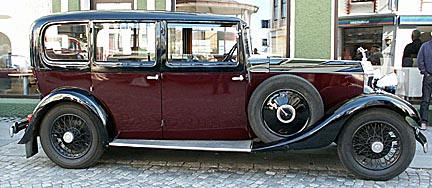
The model 20/25 was one of Rolls Royce's most popular models and remained in production from 1929 to 1936. Audrey's was a 1934 with the license plate BMG 443. This car has been featured in British TV productions for decades and was a regular character in the series. Although the side panels were painted black in the series, they are usually dark red as shown above. Richard snidely comments that it only gets 10 mpg. Actually, 20/25s average closer to 14, better than the 11 mpg his 1979 Rolls Royce Corniche gets in town.
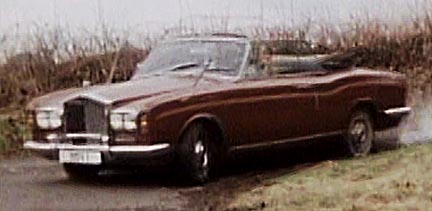
Richard's 1979 Rolls Royce Corniche
4. Audrey was a distant cousin to her husband Marton fforbes-Hamilton and already had the last name fforbes-Hamilton.
5. The series aired seven episodes in 1979, six in 1980, seven in 1981 and a 25th anniversary episode in 2007.
6. Audrey's dog Bertie is a beagle.
7. The Manor and the Old Lodge are actually 1 mile apart. Backdrops and carefully controlled camera angles makes them look much closer.
8. Brabinger's first name is Bertam.
9. Old Ned's last name is Peaslake
10. The Vicar is never referred to directly by name but during one of Audrey's outbursts she comments that if Richard's influence continues the people might start referring to the vicar as 'Pete.' This suggests his name might be Peter.
11. A vicar in the Church of England is the same as a parish priest. A rector manages a slightly larger congregation, in which a vicar would be the rector's assistant. In To The Manor Born he's referred to as both. Technically he's a rector, but the congregation is so small he's sometimes addressed more informally as 'vicar.'
12. During Marton's funeral party, Audrey complains to Marjory that her staff often eats all the 'After Eights' and leaves the wrappers. After Eights are a thin, square, dark chocolate mints with a thin filling of mint cream. Introduced in 1962, they are sold in boxes with each mint carefully wrapped in paper.
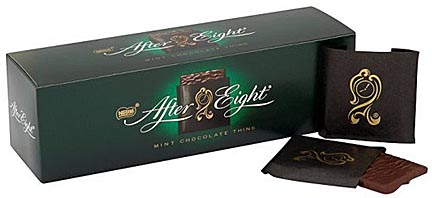
13. Audrey complains the funeral staff used wreaths to play 'hoopla.' Hoopla is a game where rings are tossed onto pegs to score points.
14. During their walk from the church to the manor, Audrey reminds Marjory of their deportment classes. These were classes for young upper class ladies where they were taught proper posture, etiquette and proper English pronunciation.
15. When Richard sneaks into the manor for the first time, he asks if the painting above the fireplace of a man holding a horse is a Stubbs. George Stubbs, 1724-1806, was England's most renown horse painter. If one of his paintings came on the market in 2018 it could cost anything from $1,000,000 to $30,000,000. I couldn't find a Stubbs identical to the one used in the series, but his Molly Longlegs is very close to it in composition.
16. Arnold Plunckett is Audrey's solicitor. In England, solicitors are lawyers who only handle legal issues outside of a courtroom. Lawyers who work in court are called barristers.
17. Mention is made of the Lord Lefttenent, meaning Lord Lieutenant. In French, it is common to slightly slur the 'u' in lieutenant so that it suggests a 'v' or 'f' sound. When the English adopted the term, they hardened the pronunciation to a strong 'f' even though they kept to correct French spelling. A Lord Lieutenant is a county's top military officer. Oddly, he may be appointed from the civilian population, usually a locally prominent lord. Originally his job was to organize a local militia to support British war efforts. More recently he's almost always a career military officer in charge of the local bases.
18. During the funeral party, Audrey sarcastically comments about Richard's checked sports coat that while she condones people hiring clothes from Moss Brothers, she thinks he must have rented his from Bertam Mills. Moss Brothers is a respected retail and rental source of formal wear. Bertran Mills is a circus. Her comment suggests she thinks his dress is so inappropriate that he looks like a clown.
19. Richard purchased Grantleigh for 876,000 pounds sterling in 1979. Correcting for inflation and the rate of exchange, this would be $5,700,000 in 2018. Considering the size of the house and the surrounding 1,000 acres he got a very good deal. One thousand acres covers a square 1.25 miles on a side.
20. Marton died of double pneumonia. This is when both lungs are infected.
21. At the funeral party, Audrey comments that hosting it is like feeding the 5,000. This is a reference to the biblical passages in which Jesus feeds 5,000 people with 5 loaves of bread and two fish.
22. When talking to Arnold Plunckett about losing the manor Audrey breaks down into tears. She quickly recovers and apologizes stating that she never used to do so before Britain entered the Common Market. The Common Market was a conglomeration of European countries that agreed to work together to be more competitive in the world market. Many British conservatives, like Audrey, felt it compromised Britain's sovereignty.
23. When rallying to keep Grantleigh, Audrey states that her family has endured famine, plague and labour governments. As part of the aristocracy, it's not surprising the the the fforbes-Hamiltons would be conservatives. The Labour, or in the US, Labor, party was similar to our Democratic party, whose liberal goals are increased influence in the lives of everyday people. Many of their socialistic policies have led to the demise of almost the entire aristocratic class by taxing them to oblivion. Her associating the Labour party with famine and plague tells us what she thought of it.
24. When Marjory recommends that Audrey settle for what she has and adopt a quieter life, Audrey retorts that she could never accept a life of canning fruit and listening to the Archers. The Archers is the longest running radio soap opera in the history of the world. It began in 1950 and still airs in 2018 five times a week. It has broadcast over 18,500 episodes in its 68-year lifetime.
25. After buying the manor, Richard explains to Audrey that he intends to run his business from it via a telex link and that because of this it could be anywhere, even Timbuktu. A telex link was a system of connecting businesses with printers. It eventually gave way to FAX machines. In a way, it was an early precursor to the Internet. Timbuktu is a city in the north African country of Mali. References to it are the same as saying something is 'at the end of the world.'
26. Who's Who is a British publication listing around 30,000 of England's most influential people. Established in 1849, it represents the top authority on who's important and who isn't. People can be nominated or nominate themselves for consideration. If approved, they fill out a questionnaire about themselves, which is then rewritten in concise form for publication. Once someone is in Who's Who they are in it for all time, even after they die. Ex Directory refers to people who don't have telephone numbers for reasons of privacy. I could not find a reference explaining how this is connected to Who's Who.
27. At the very end of this episode, Richard departs saying "Au Revoir" to Audrey. This is a French expression that roughly translates to 'until we meet again' with the suggestion that the speaker looks forward to it.
EPISODE 2:
1. Richard got his start in the grocery business selling fruit out of a barrow. While a strict translation leads one to think a British barrow equates to an American wheel barrel, the two are quite different. A British barrow is more like a waist-high table with two legs having large diameter wheels so it can be moved. Many feature elaborate painted designs and come with protective awnings.
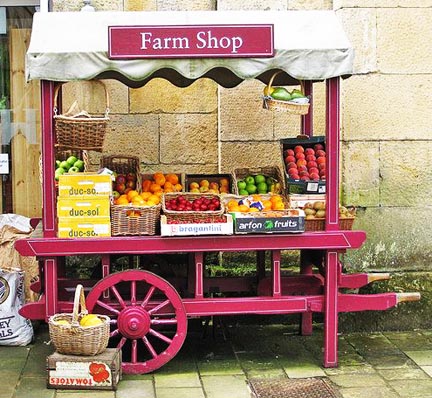
Audrey states that as such he's really just a costermonger, a derogatory term for street hawkers who yell to attract customers.
2. Audrey complains that Richard has refused Mrs. Proctor to hold the pony club gymchana (pronounced gymcarna) on the estate in the home paddock. A pony club gymchana is similar to a rodeo, minus more dangerous activities such as bull roping and hog tying, where games are played on horseback. Much of the activity is directed at the youth to encourage their interest in horses. The atmosphere is similar to a county fair. Audrey says it's held in the home paddock, which in Britain means the field on which the gymchana is held, though it can also refer to stables used to house horses.
3. At one point Brabinger appears greatly troubled about packing up and leaving Grantleigh. Audrey tells Marjory that it's really 'knocked him for six.' This is the same as saying he was extremely upset. The idiom comes from cricket where a 'six' is the highest score an individual action can be awarded. 'Knocked for six' upsets the other team because the hitting team made so many points.
4. When the furniture movers arrive, Audrey tells them that she doubts they can tell the difference between Hepplewhite and Dralon. Hepplewhite was a highly respected maker of Federal period (1780-1810) English furniture. Dralon was their German counterpart.
5. Marton fforbes-Hamilton's career in India was cut short when he told Nehru his jacket was buttoned up on the girl's side. Nehru was the prime minister of India from 1947 to 1964. The Nehru jacket was named after him, even though there is no evidence he ever wore one. It was a waist-length jacket with a high collar and of a very simple, straight style. It was formal wear for Indian men. As per custom, it buttoned up on the opposite side of western European jackets.
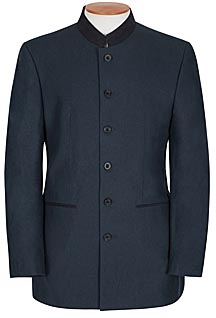
This Nehru jacket was designed for the western market and features American style buttoning.
Nehru jackets became stylish in the west from the 1960s through part of the 1970s.
6. As they leave the manor, Brabinger is dressed in a very heavy, elaborate chauffeur's uniform. Audrey mentions he looks like Eric Von Stroheim, an Austrian-American actor who appeared in several movies dressed in German military garb.
7. Audrey rebukes Richard, saying as the lord of the manor he has an obligation to maintain its standards. She says something like, "It's called noblesse oblige. That's an English expression so you probably haven't heard of it." It's actually a French saying expressing that the aristocracy has a duty to be generous to those less fortunate. However, it's become so universally used that it's accepted, at least by her, as being an English idiom.
8. While listing his duties as lord of the manor, she mentions steam fairs and caravan clubs. Steam fairs are local expositions where all types of steam driven vehicles and machines as put on display for the public. If this seems odd, it may help to remember that one of the main reasons Britain became so great is that for many years it had a near world monopoly on the manufacturing and selling of the steam powered equipment that powered most of the industrial revolution. The income from this helped power much of their imperialistic growth, which is why remembering these technologies is a way of honoring their contribution to Britain. Caravan clubs are groups of members of the national Caravanns (with 2 'n's) Club, which participate in group field trips with tents and motor homes across the country.
9 Audrey wins a 50 pound bet with Richard that he can't convince her to be his social secretary. Corrected for inflation and conversion rates, that's the same as winning a $325 bet in 2018.
EPISODE 3:
1. Early in this episode Ned is charged with repairing Audrey's Webster longcase (grandfather) clock. Thomas Webster founded one of the most prestigious clock companies in England. Passed from son to son, they made clocks of all sizes from 1710 to 1914. Today their longcase clocks are valued at anywhere from $8,000 to over $30,000.
2. When Audrey complains that Richard isn't fixing Grantleigh as fast as he could, he flippantly responds that he's waiting for bob-a-job week. A 'bob' is slang for a shilling, 1/20th of a pound or around $0.50 today. Bob a job week was when boy scouts would earn money for themselves or the scouts by doing a wide range of short, quick, simple jobs for which they'd earn a for each small job.
3. Audrey complains that she misses getting invited to Glyndebourne, even though going would require her to sit through never-ending operas. The joke here is that the whole purpose for going to Glyndebourne was to attend the opera festival help there each year. It seems she enjoys the grand house used to host the operas, but not sitting through the music.
4. Richard solves the crossword puzzle 'dance before the post horn gallop' as being 'foxtrot.' A post horn is a small valveless brass horn used in hunts. In this context, it refers to the 'gallop,' or fast walk or march, into the ballroom during a Hunt Ball or party.
5. The Muslin New Year varies from year to year because the Muslin calendar has fewer days than the English calendar. For example: it was December 9th in 2008 and September 21st in 2017.
6. Aberystwyth is a coastal town Wales. I could find no reference explaining why anyone would want to go their to observe the high tide, unless it's an extremely high, high tide or it marks the beginning of a local event.
7. Audrey quotes a passage from the Countryman Magazine to express her feelings about the coming of Spring. This is one of the most respected magazines in the world about rural life. It was established in 1927 and is still in publication today.
7. Audrey is afraid Richard is going to let the estate fall into 'rack and ruin.' The correct spelling for this idiom is 'wrack (misery) and ruin (destruction.)
9. At one point Audrey mentions that Grantleigh is in one of the wettest counties in the UK. Because of its long coastline, Somerset has a very mild and wet climate. It averages 2.4 inches of rain a month every month of the year. The lowest temperatures are 35 F and the highest average 71 F. It rains an average of nine days every month.
10. To this observation Richard states that he doesn't care as long as it doesn't shrink to the size of a bonsai bowling green. Bowling greens are rectangular grassy playing fields for Bowls, in which players take turns trying to roll balls as close as possible to a target ball.
11. While defending church traditions, Audrey mentions Cranmers Prayer Book. Thomas Cranmer (1484-1556) wrote The Common Book of Prayer, as a guide to standardize the order of events during services in the newly formed Church of England.
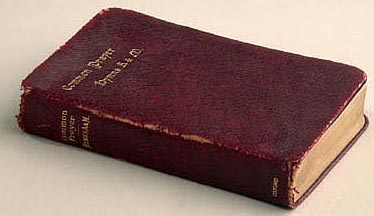
12. Audrey is late for church because she forgot about daylight saving time. In Britain clocks are set forward at 1:00 AM on the last Sunday morning in March.
EPISODE 4:
1. In the opening scene, Audrey complains about the price of 9-penny stamps, an idiomatic name for the stamp required to mail a first class letter. She has good reason to. In US in 2018 a first class letter costs $0.49. In Britain the same letter would cost $0.88.
2. Audrey buys a large 'bloomer,' which turns out to be a loaf of bread. More specifically, a 'bloomer' is a large loaf of unsliced white bread that weighs close to two pounds.
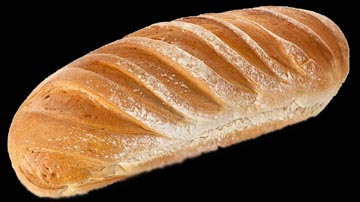
The texture is slightly denser than regular white bread and the crust, which many times is scored, it thick and crusty. It's called a bloomer because it's not baked in a tin and as such is free to spread or bloom.
3. Richard buys a breaded ham. This is a ham pulled from the oven an hour before it's done and coated with a mixture of bread crumbs, brown sugar, butter or oil, and sometimes mustard then returned to the oven to finish baking. The bread crumb coated helps seal in moisture and creates a sweet, crunchy exterior.
4. Audrey is distressed she can't buy a can of Royal Game Soup. This is a rich soup of pheasant and venison, potatoes, carrots, onions and various spices in a dark broth.
5. Mrs. Patterson's store is called an off-license because it has a license to sell alcoholic beverages to be consumed outside of the store, unlike a pub where it can be consumed on the premises.
6. Richard also buys a box of Havana cigars. Assuming a man in his position would only purchase the best, a modest box of 25 would have cost 76 pounds in 1979, equal to $500 in 2018.
7. Thread Needle Street in London marks the financial center of England. In 1979 it had the headquarters of the Bank of England, the London Stock Exchange and many more prestigious institutions.
8. When Audrey returns home she's distressed to learn Brabinger found a dead pigeon in the water lodge's water tank. Many older houses in Britain had water storage tanks connected to the main water supply to store water for use when water demand was so high the mains pressure dropped so low it couldn't keep up with it. Like the tank to a toilet, these tanks would automatically be refilled at a slow rate the mains could handle yet for a short time supply the high flows rates needed when the main pressure was low. Normally these tanks are sealed to prevent dirt and animals from entering, but many have covers that are loose or completely missing.
9. Marjory defends Richard partially because he's working to correct the manor's problems with dry rot, rising damp and the death watch beetle. Dry rot is a crumbling of wood caused by a fungus that doesn't require as high a level of moisture as most fungi to grow. Rising damp is moisture pulled upward through a building's foundations via capillary action. In most locations evaporation of moisture out through the sides of the walls prevents it from working up very high, but in areas of high humidity where evaporation is minimal or where the walls have been painted with waterproof paint, it can creep upward far enough to compromise plaster, weakened wood and cause paint to flake off. Death watch beetles are small wood-eating insects that make a faint clicking sound that can only be heard when the infected house is completely silent, such as during a vigil after someone has died, hence the name. They can only be heard by the mourners standing a death watch.
10. Audrey pesters Richard into preserving an old wood fireplace mantle claiming that is is valuable antique Adam. Robert Adam (1728-1792) was an influential designer and production innovator. One of his inventions was a moldable mixture of wood fibers that could be pressed into forms allowing him to quickly manufacture complicated shaped that appeared to have been painstakingly hand carved.
11. Richard's safe in his new office is a Chubb, a renown UK safe company from 1818 to the present.
12. While Audrey is helping Richard buy a horse, he claims the horse is for her but when the salesman asks what weight the horse will be carrying, Richard responds "15 stone." Since this is 210 pounds it's no wonder Audrey gave him a dirty look.
13. Audrey discovers one horse has a bowed tendon. This is tendon that has been partially torn, then healed improperly so that it isn't perfectly straight.
14. She asks if the horse had been 'fired." This is where the damaged area is burned using either fire or acid in the thought that doing so speeds internal healing.
15. In the end Audrey gets Richard a good hunting horse for 750 pounds, which was a great deal. Based on 2018 prices and reverse correcting for inflation, average prices for such a horse would be closer to 900 pounds.
16. Brabinger and Marjory discover a Portland Stone hearth in Audrey's lodge. Portland Stone is limestone from the Isle of Portland, Dorset. It is famous for having a beautiful and very uniform gray-white hue.
EPISODE 5:
1. Laughter follows Mrs. Patterson's suggestion that Brigadier Lemington may have to go to Dundee to get his car license. This is because Dundee is in northern Scotland, just about the farthest place in Britain from Somerset.
2. Her second suggestion that he take a V10 to Thorton gets almost as big a laugh because it's in the middle of Britain, almost as difficult to reach.
3. Audrey chides the Brigadier for driving around with an expired car license with the notice 'license applied for' posted on the car. The reason Audrey brings it up is that as a magistrate she's in a position to fine him for not having a license. A magistrate is a locally prominent person assigned by the British legal system to hand out legal judgements for local crimes with sentences up to 6 months in jail and fines up to 5,000 pounds sterling. There are typically three magistrates per district who acted together as both judge and jury. Legal training is not a requirement. Magistrates get legal advice from Justice's Clerks, who have degrees and certifications in the law. Magistrates also sit on licensing boards, which approve permits for the sale of alcohol and so forth.
4. The reason Lemington could get away with 'license applied for' was that British bureaucracy is notoriously slow in processing licenses.
5. Summer Hunt Balls are formal dinner and dancing balls designed to help play for some of the expenses associated with the hunt. In many cases they feature an auction to earn additional funds.
6. The Brigadier states his wife can't manage the ball because she was injured in a point-to-point. This is a horse race where contestants race to a fixed point, turn around and race back to the finish line, which is the same as the starting line.
7. Richard is a non-playing member of the MCC, or Marybourne Cricket Club, one of the most prestigious in the land and considered the home of cricket.
While cricket explanations abound on the Internet, they can be challenging to understand without a comparative reference. The following description is grossly simplified, but helps people in baseball-dominated countries get an idea of how it's played:
Imagine a small baseball diamond with the pitcher (bowler in cricket) standing close to second base. The batter stands at home plate, like normal, but there is a second man at second base who is on the same team as the batter. The pitcher throws the ball at the batter, making sure it hits the ground before it gets to him, and the batter hits it on the bounce. If the ball is hit where the fielders are going to need a few seconds to get it, the batter runs straight across the diamond to second base at the same time as the runner of second base runs directly to home plate. If they both make it before being tagged out, they have scored one run. If the ball is hit so well that there is enough time, the batter and runner can run back to their original positions to score a second run. They can continue running and scoring runs as long as the ball is far enough away so that they can't be gotten out. Balls hit out of the park score an automatic six runs. They play until five outs are called, at which time the teams trade places.
Scores can climb into the hundreds and games can go on for days.
Cricket balls are hard cork wrapped in twine then covered with leather with raised stitching running parallel in five lines around the middle. They are slightly smaller and much harder that baseballs.
8. The Brigadier asks Richard to get him young Brearley's autograph. Mike Brearley was a top ranked cricket player with one of the game's best win records as both a player and team captain. He eventually went on to become the president of the MCC. And by the way, the brigadier in Lemington's name indicates he retired as a brigadier-general (one star) in the British Army.

Mike Brearley in the 1970s.
9. The episode closes with Audrey and Richard dancing to the great 1935 hit (Dancing) Cheek To Cheek. This song by the renown dancer Fred Astaire was #1 for 11 weeks, equivalent to 22 weeks in today's ranking system, and has become a perennial for formal dances.
EPISODE 6:
1. This episode opens with Mrs. Polouvicka hammering the stems of roses for an arrangement. This is purely a plot element to provide her a weapon to annoy Richard enough to make him let her have her way. There is no reference recommending hammering rose stems to make the flowers last longer. Every one recommends a clean, diagonal cut.
2. At one point she claims she's ashamed to hold up her head in the chiropodist's, or foot doctor's.
3. Audrey mentions brass rubbing, the hobby of laying a sheet of thin paper on top of a plaque and creating a copy by rubbing graphite, colored wax or chalk over it. For a while this was a popular activity in England.
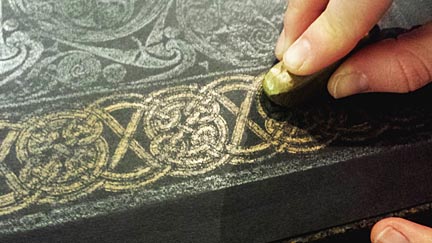
4. Audrey mentions that she and Marten relied on Milk Marketing Board subsidies for income. The British Milk Marketing Board was a government agency devoted to protecting the British dairy industry. One of their tools was to subsidize, pay money to, dairy farmers to make up for cheaper milk produced in Europe. Since part of Grantleigh served as a dairy farm, they would have been eligible for these subsidies.
5. Brigadier Lemington mentions the Desert Rats, which was an armored force in north Africa during WWII.
6. While packing for her trip, Audrey makes sure she has Kaolin (for diarrhea, a problem at the time in most European countries,) Kwells (for motion sickness,) Silver Sun (suntan lotion) and something called diocom, about which I could find no information. A process of elimination based on the other medicines suggests it might be for altitude sickness or headaches.
7. When Brabinger appears wearing shorts, she accuses him of dressing like a chindit. These were WWII combat units in India made up of both Indian and British troops. Shorts were permitted to help them deal with the heat and humidity.
EPISODE 7:
1. Troubled with money problems, Audrey wonders if a silver plate she's holding is worth anything. Sadly, she notices it's only EPNS. The term EPNS stands for electroplate silver-nickel. Silver-nickel is an alloy of copper, nickel and tin that looks like silver. It's used as the base metal onto which silver is electrically plated to make inexpensive silver-looking cutlery and plates.
2. Richard is making a commercial for Fontleroy's Old English Tonic. There is no reference for such a produce so I assume it was a fictitious brand.
3. At one point the commercial's director suggests they may do a voice over using "the man who does the sherry commercials." This would be Orson Welles, who filmed a number of commercials for Paul Masson wines.
4. The director decides to have Richard wear a hunting pink jacket for the commercial.
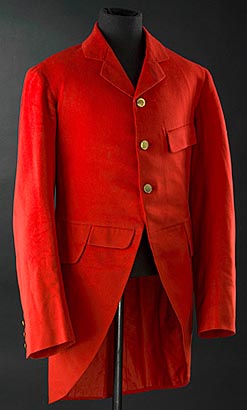
Hunting pink jackets are actually closer to red.
This would have been inappropriate because only titled men or masters of the hunt would be authorized to wear it.
5. When Audrey finds out Richard is compromising the integrity of the manor by making a commercial, she explains it's, "...the dernier cri," which is French for 'the last cry,' which most closely corresponds in American English to: the last straw (that broke the camel's back.)
1979 CHRISTMAS SPECIAL:
1. The main plot element in this episode was; Who would supply the Christmas crib." The terms 'nativity scene,' 'chreche' and 'crib' all mean the same thing.
2. Ned attempts to put 'fairy lights' on Audrey's Christmas tree. These are the same a electric Christmas tree lights.
3. The failure of his lights to work properly prompts Audrey to decide to forgo his 'belisha beacon,' which is the name for the bright amber lights marking pedestrian crossings in Britain.
4. Audrey compliments the Queen at the conclusion to her annual Royal Christmas Message. This is an approximately 3-minute speech given by the monarch every Christmas since it's inauguration in 1932 by King George V. The topics usually include comments on important events over the previous year and personal notes about the royal family. It is one of the few speeches the monarch give which he or she can write for themselves.
5. During the Queen's Speech, Audrey and Marjory are wearing tissue paper hats, one of the common prizes included inside Christmas crackers, small tubes filled with various items that go pop from a small firecracker when the ends are pulled.
6. Audrey comments about playing 'sardines' on previous Christmases. The is a game similar to hide-and-seek. The difference is the in hide-and-seek, one person hides and all the other players try to find him or her. Sardines is the opposite, everyone hides and one person tries to find them all. Multiple people can elect to hide in the same place.
7. She also recalls watching 'Basil Brush.' Basil Brush was a hand puppet with an upper class accent who started out in the early 1960s as a children's show character.
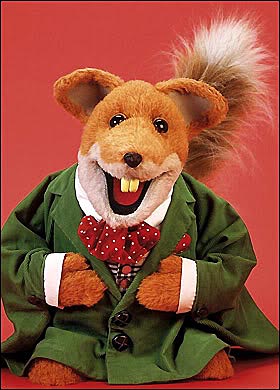
He eventually became so popular that by the 1970s he had his own show that had enough material drawn from current events to appeal to the entire family.
EPISODE 8:
1. Early in this episode, Ned is seen digging Audrey's garden because it has 'blight.' This is a general term for any number of fungus diseases such as mildews, rusts and smuts.
2. Grantleigh's new farm manager complains that he can't believe Richard is still using antiquated Fordson tractors. Fordson was a tractor company that started in 1917 and continued under several different owners until 1964. As it turns out, the Fordson belonged to a neighbor. Richard's land was being worked by drawn horses.
3. Ned lives in a 'tied' cottage, so called because it was 'tied' to his job. Tied cottages are owned by the landowner and rented to employees. It is a much-criticized practice because it's viewed as preserving the servant class.
4. Audrey cringes when Ned mentions his pet ferrets. This is understandable because ferrets are notorious for their strong musky odor.
5. A butler's pantry is a room between the kitchen and dining room in which service valuables like silver are stored. Many times the butler would sleep in it to guard them. In larger houses the butler's pantry might be expanded into a living suite and office for the butler.
EPISODE 9:
1. This episode revolves around a traditional hunt taking place on the manor. The formal British hunt began in the 1500s as a way for the wealthy to combine the necessary task of reducing the number of predatory pests, primarily red foxes, with sport. It came under increased criticism in the 1900s because of its cruelty to the fox. As of 2005 it has been banned in most parts of the UK except under certain conditions. One surprising fact about a traditional British hunt is that the people on horseback are unarmed. They do little accept follow the dogs, who do all the work.
2. One of the comic elements pertains to Audrey's school nickname, which is never mentioned. Many years ago I was fortunate enough to exchange emails with someone involved in the production of To The Manor Born and asked him if a nickname had been created even though it was never used. He said, "No," but I've always wondered of the actors made up an unofficial one just between themselves. Diana had to have whispered something in Richard's ear. I would love to find out what it was.
EPISODE 10:
1. Richard says his 4,000 BC Egyptian vase cost 40,000 pounds sterling, $260,000 in 2018 dollars. He seems to have gotten it at a good price because looking through two major auction houses suggests it would cost closer to $375,000.
2. Audrey tells the glazers she what the glass for her new windows cut to fit the mullions, not the mullions knocked about to fit their glass. Mullions are the vertical frames between windows.
3. Marjory borrows Richard's vase for a play being put on by the W.I., or Women's Institute. This is organization started in Canada in 1897 and quickly spread to the UK. It has been invaluable in supporting many charitable works, particularly during the two world wars.
EPISODE 11:
1. An important plot element in this episode concerns poaching, the illegal trapping of game. This has always been and still is a serious crime in Britain. Not only because valuable game is being stolen, though many times the killing is only for the sport of it, but because of significant destruction of private property.
2. Richard offers the Brigadier a glass of what sounds like 'slow gin.' He's actually saying 'sloe gin.' Sloe gin is gin that has been infused with tart sloe berries and sometimes a little sugar. The resulting drink has greater depth of flavor than plain gin.
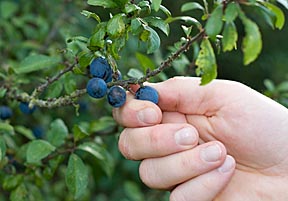
Sloe berries look a lot like blue berries, but don't make the mistake of trying to eat them raw.
3. Ned states that casual laborers used to be given a Bedford Clanger, or more correctly a Bedfordshire clanger. It is as her described it, a long pastry roll half filled with meat and half with something sweet like jam or baked apples.
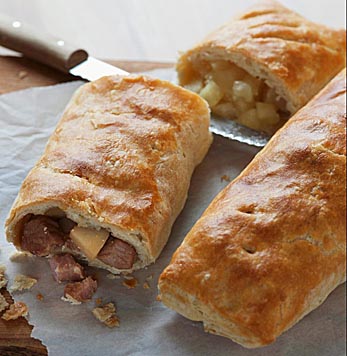
The sweet end was marked with several cuts in the dough before baking. It was actually used as an all-in-one meal for estate staff working long days in the field.
4. Ned also said they used to keep them warm under cow pats, or manure piles, which are warm by virtue of organic decomposition.
5. One of the jobs expected of the itinerant workers was dealing with slurry carts. These were movable containers into which all of the animal and vegetable wastes from the farm were added until full, then moved to a central composing location where they would be piled until they broke down into usable fertilizer.
6. The term 'mad as a hatter' is used at one point. Professional hat makers used mercury in the making of hats and its ingestion over time drove them crazy.
EPISODE 12:
1. Mention is made early in this episode of the New Year's Honours List. This is the announcement twice a year, once at New Year's and the other on the Queen's birthday, of approximately 1,350 people who are being recognized for service to the United Kingdom. There and many different awards ranging from simple medals all the way to awarding dukedoms.
2. During the New Year's Party, there is a debate about the collective noun for ducks. While references vary somewhat is agreement, the most consistent sources claim it's a raft or paddling of ducks if they are on the water and a brace of ducks if they have been shot. Of course it's proper to use the term 'flock' for any collection of birds. One interesting collective is for hummingbirds, which is a charm of hummingbirds. The problem with this is that hummingbirds are so pugnaciously independent that they next flock.
3. Ned's comic contribution was that the answer was 'fricasse,' which is one way of cooking and serving duck. A fricassee is browned meet served as a thick stew with vegetables and served in a white (or bechamel) sauce of stewing liquid enhanced with milk and thickened with a light roux of cooked butter and flour.
4. Brigadier Lemington is awarded an OBE for his service in nature conservation. This is the honour: Officer of the Most Excellent Order of the British Empire.
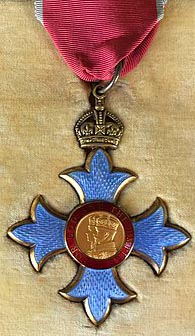
EPISODE 13:
1. Audrey has to go to the National Health Service for an injured back. This service provides free health care for all UK citizens. It's paid for by taxes and covers everything except dental, optical and some medications.
2. Marjory complains of having a 'chill,' upon which Audrey comments that she actually has a cold. Only the royal family has chills. The semantics are vague, but it appears ill health is considered a sign of weakness and poor breeding. Since it's unattractive to attach such things to the royal family, instead of getting colds (an actual illness) they only chills, a minor response to cold weather.
3. Marjory catches Audrey wearing her Wellington boots. Wellingtons, or simply wellies, are calf-high waterproof leather boots designed by Arthur Wellesley, 1st Duke of Wellington in the early 1800s. In 1852 a rubber version was introduced, which turned out to be so useful that the design swept the UK and much of Europe. Modern versions are usually of flexible PVC plastic. For a country with as much rain and mud as Britain, they a critical component of country life.
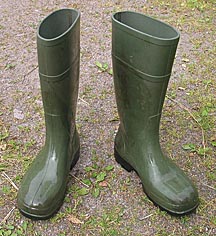
EPISODE 14:
1. The Girl Guides play an important role in this episode. They were created in 1910 by the same man who created the Boy Scouts to satisfy the demand of young girls to participate in the same sorts of activities as the Boy Scouts. Girl Guides is an offshoot of the same organization and boasts over 100,000 active members in Britain alone.
2. Richard invites Audrey on a picnic reflecting the painting by Monet titled, De Joue Le Salade. Unfortunately, after reviewing all 166 known Monet paintings a picture or recognition of this painting could not be found.
3. Brabinger was Marten's batman, a personal military orderly and valet for a British officer.
4. It was around this episode that Richard's Rolls Royce corniche turned from dark red to black.
EPISODE 15:
1. British Railways, later British Rail, at the time of To The Manor Born was the government run railroad system that serviced all of the United Kingdom. In addition to ticket fees, it was heavily subsidized by taxes. It represents a classic example of government inefficiency. Nationalized in 1948, it was a constant drain on taxpayers in spite of massive reductions in services. Most notably, the number of people using it declined steadily until 1995, when it was privatized, which saw a sudden increase in the number of people using it.
2. The Brigadier likes putting, or soaking, Stilton cheese (a cheddar-like blue cheese) with port. Because of its blue-cheese structure, in which open fissures run throughout the cheese, the port is able to completely soak it. Richard states he shouldn't do so. Research suggests that soaking Stilton with port wine is favored by cheese lovers all over the world. The only references stating it shouldn't be done are those sponsored by Stilton manufacturers. Perhaps they think their product should be appreciated in its unaltered state. It looks like Richard accepted their verdict.
3. Dr Richard Beeching was the chairman of British Rail from 1961 to 1965. Although his term was short, his controversial actions of shutting down almost one-third of the entire system to save costs made him one of the most influential in its history.
4. Audrey warns the railway representative that in attempting to close their station he has met his Waterloo. The Battle of Waterloo, 18 June, 1815, saw British forces defeat Napoleon's army and in effect stop his conquest of all of Europe and, given time, the entire world. As such it has to rank as one of the most influential battles of all time. Waterloo is in the middle of Belgium.
5. The episode ends with Richard informing Audrey that the station isn't closing but being kept open to service a new comprehensive school. Comprehensive schools in Britain cover grades 6 through 10 and occasionally 12 by the American system. Think of them as a combination of middle school and high school.
EPISODE 16:
1. Much of this episode revolves around Audrey's supporting various charity tasks such as Meals on Wheels, Whist drives and Beetle drives.
Meals on Wheels began in the 1930s as a way to provide hot meals to the ill, bereaved or elderly everyday. In time it became managed by local councils, though because Parliament never established it as an entitlement, it meant support was voluntary. In recent years councils have cancelled their support in an effort to reduce costs.
Whist drives were motored events where volunteers would pick up and drive people to a central location to play the classic card game Whist in a social settling.
Beetle drives were much the same except that they would play Beetle. This is a game played with a single dice, a pad of paper and a pencil. The goal was to be the first one to finish drawing a beetle, consisting of the following:
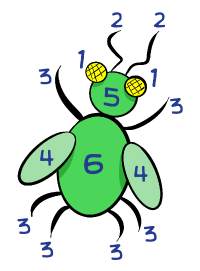
You have to roll the number on the die that corresponds to the number on the body part. The body (a 6) has to be the first part and no eyes or antenna can be drawn until the head is rolled and draw. It's a simple children's game but popular on Beetle drives. The winner can either be the first one done or for longer games, the first one to reach a certain number of points based on the value of each body part and their number. For example, each leg is worth 3 points. There are six legs so if you have all six legs you've earned 18 points from them plus the 6 points for the body for a total of 24 points. A completed beetle is worth 43 points.
2. At one point Mrs. Prockor states that the trade unions unions have you by the fetlocks. A fetlock on a horse is a joint in its foot so the meaning is that you can't move because of the unions. The innuendo suggests something a bit more risque.
3. The RSPCA is the Royal Society for the Prevention of Cruelty to Animals.
4. A policeman tries to ticket Audrey's horse because she's tethered it in an automobile parking spot and does not have a pay and display ticket. These are tickets purchased from automated vendors to pay to park within city limits.
5. Richard invite Audrey to have lunch with him at Maxim's in Paris. Maxim's, established in 1893, is arguably the world's most famous restaurant. He was lucky she declined and instead they had lunch at a local restaurant, where it only cost 12.5 pounds, equivalent to $81.38 in 2018 dollars. Lunch for two at Maxim's averages $400.00.
6. One of the things Audrey misses about not having a car is not being saluted by AA men. AA men were roving motorcyclist with sidecars filled with tools to helps any AA drive they encountered with motor problems. There were hundreds of such representatives on the British Automobile Association on constant duty. They would salute anytime they saw a car sporting an AA emblem.
EPISODE 17:
1. Most of what it said about the Bee Eater birds ravaging Audrey's bees is true.

Marops Apiaster
It is a truly beautiful bird.
2. Mrs Polouvicka asks Mrs. Patterson for a carton of long life milk. This is milk that has been exposed to longer than normal pasteurizing temperatures so that has an unrefrigerated shelf life of six to nine months.
3. The supposed twitcher asks Mrs. Patterson for a bag of beef burgers, the same as hamburgers.
EPISODE 18:
1. Richard says the pop art painting of a nude in a shower is a Hockney. This is David Hockney, born 1937, who is considered one of the most important modern painters in the 20th century. Hockney paintings can run anywhere from $1 million to $12 million.
2. Unbeknownst to him, Audrey has substituted for it a sea scene by Turner. J.M.W. Turner (1775-1851) is a grand master whose paintings have sold for over $47 million.
EPISODE 19:
1. In a business meeting we learn Richard applied for but was refused membership in the men's club Brook's (pronounces Brock's.) Brook's was established in 1764 and is one of the oldest and most exclusive clubs in the UK.

The Brooks Club on St. James Street.
2. Audrey's uncle Hartley is jokingly accused of having an account at Caxton Hall. This is where the upper class go for civil marriage ceremonies. The implication is that he's been married so often he's a regular there.
3. The executive Richard fired is jokingly consoled that he can now afford to purchase a house in Croydon, which is considered one of the worst boroughs in all of the UK because of rampant graffiti and vandalism.
4. Audrey starts studying the financial pages so she can speak to Richard about stags, bulls and contango.
In British finance, a stag is a person or financial entity that buys a new stock as soon as it's offered with the intent of selling it right away with the assumption that it is going to experience a fast, short term increase in value.
A Bull market is one with increasing value.
A contango is an agreement to buy something in the future at a price that is higher than the item's projected value. The reason is to (hopefully) save money by avoiding the storage and handling costs of buying it now and to guarantee that it will be available and not sold out when needed in the future.
5. At one point Audrey mentions pounds, shillings and pence, to which Marjory corrects her saying that's it's now just pounds and pence. Up until 1971, British currency consisted of primarily the pound, which was divided into 240 pence or 20 shillings, so a shilling was 20 pence. After 1971 it bacame 100 pense to the pound. Shillings were done away with.
6. Audrey is described as being a Sloane Ranger. This was a somewhat derogatory label given to young upper class women who followed an active, sporting lifestyle.
7. Much of this episode takes place in or talks about "The City." This is the London Financial District, technically the City of London as it is in the heart of the greater London megalopolis and considered the original London from antiquity. The "City" is a tiny, one square mile area in the center of London that contains most of England's vast banking, investment management and stock exchange headquarters.
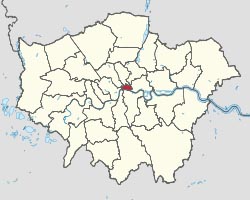
The small red area is "The City" zone of greater London in white.

The
highlighted area is what today's modern "City" area
of London looks like.
In
Richard's time the building would have looked more blockish.
Due to the extremely high cost of living in this area, less than 10,000 people actually live in "The City." But, more than 300,000 arrive everyday to work there.
In addition to "The City" as a physical entity, "The City" also exists as the consensus of opinions of its principle leaders as to the financial desirability of any particular individual, venture or company. In Richard's case, the general opinion of The City" is that he's too big a risk to support... until Audrey convinces her influential uncle Hartley to put in a good word for Richard.
EPISODE 20:
1. When one of the banks calls Richard to tell him they are withdrawing their support, his response is that it wasn't something he expected from a listening bank. At one time the Midland Bank of England was the largest in the world and prided itself on listening to its customers and giving them the services they wanted, hence the slogan: We are the listening bank.
2. Richard sells the estate back to Audrey for 990,000 pounds, equal to $6.4 million in 2019. If Richard had invested less than the $700,000 increase he did pretty good.
3. Near the end of this episode, where Audrey and Richard decide to marry, they are standing near the memorial statue of Marton fforbes-Hamilton.
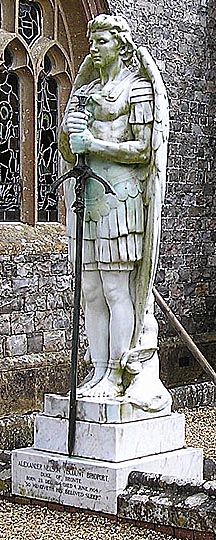
The statue exists but is really for Alexander Nelson, the 4th viscount Bridport.
Return to my main page to browse 60 other subjects